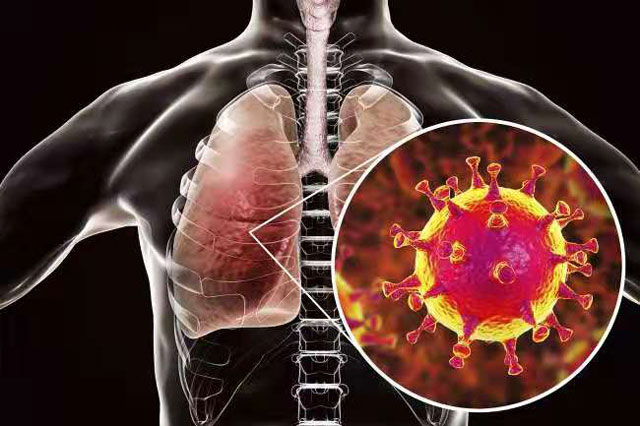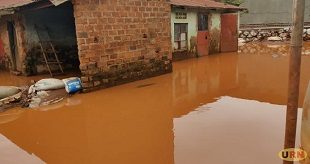
Kampala, Uganda | RONALD MUSOKE | Hundreds of data scientists from around the world will over the course of this month (May) take part in a global competition aimed at creating a computer programme that accurately predicts air quality in Uganda.
The challenge dubbed “The AirQo Ugandan Air Quality Forecast Challenge” will see top designers share up to US$5,000 (Shs 19 million) according to AirQo, a Makerere University-based research initiative which collects, analyzes and forecasts air quality in Uganda.
Over 400 data experts from several countries including Tanzania, India, Nigeria, Japan, and the UAE will use information collected hourly from over 60 sensors mounted around Kampala to accurately forecast air quality for a future 25-hour period using the Zindi data science competition platform.
The competition is organised by environmental scientists at the University of Birmingham and the AirQo project from Makerere University, Kampala, in partnership with Zindi – Africa’s largest data science competition platform focused on solving the continent’s most pressing problems.
The winner’s air quality forecast solution is expected to be implemented in Uganda to help the country’s environmental experts make policy and planning decisions.
Air pollution is one of the leading preventable causes of death around the world. The UN’s World Health Organization (WHO) says it kills nearly seven million people every year.
Air pollution and COVID-19
According to the latest research published in the journal Science of the Total Environment, long term exposure to air pollution may also be “one of the most important contributors to fatality caused by the Corona virus” which is wreaking havoc and killing hundreds of thousands of people around the world.
The study looked at COVID-19 fatalities in four of the countries that have been hit hardest by the virus – Germany, France, Italy and Spain. It found that 78% of deaths have occurred in just five regions in northern Italy and Spain.
These regions, the report notes, have the highest concentrations of nitrogen dioxide (NO2), a pollutant harmful to human respiratory systems, while their geography means these areas also suffer from downward air pressure, which can prevent the dispersal of airborne pollutants.
As well as weakening people’s respiratory systems and making them more susceptible to COVID-19, air pollution might also be functioning as a vector – that is, as a method of transmission for the virus. Scientists in Italy have detected coronavirus on particles of air pollution, which could, they believe, help the virus spread.
Air quality experts say the ability to accurately predict air quality over short time periods will empower everyone from governments to families to make informed decisions to protect health and guide people’s actions.

Professor Francis Pope, a Systems Approach to Air Pollution, East Africa Project Lead, from the University of Birmingham says one of the main indicators of air quality is PM2.5 generated by traffic, industry, and burning fossil fuels, these particles are invisible to the naked eye but can cause major health problems.
“We hope that one of our competitors will devise a forecasting solution that can be put into practice – allowing people in Uganda to make decisions about their day-to-day lives based on reliable forecasts of the threat to health from air pollution,” said Professor Pope.
The ability to accurately predict what air quality will be in the coming days is essential for empowering everyone from governments to families to make informed decisions to protect health and guide action, just as we do with the weather.
Until recently there has been a lack of data on air quality across sub-Saharan Africa. Reference-grade monitors are extremely expensive, and without access to data it is very difficult to raise awareness of the issues, or for government, business and individuals to know which actions to take to improve air quality and protect community health.
AirQo has built a low-cost network of sensors and collected data across 65 locations in Uganda with some sites monitoring for over three years. There is now a wealth of data that can be used to achieve impact in this critical area.
Birmingham University’s ASAP East Africa project makes use of this and similar data to gain insights into the relationship between urbanization and air quality.
Paul Green, AirQo Technical Project Manager, Makerere University noted that the competitors could see their solution significantly improve the quality of life for people in Uganda.
“With accurate forecasting, for example, if we know that the next day will see high levels of air pollution then sports or other events can be rescheduled or relocated,” Green said, adding that: “The solution could be life-saving.”
“Sensitive groups such as children, the elderly, sick, or those with respiratory illnesses may need to remain inside (while) schools can plan the timing of outdoor activities such as field trips or sports events with confidence.”
Green added that activities known to contribute to poor air quality such as high traffic volumes, rubbish burning, cooking using charcoal and firewood, even construction or other government works could also be reconsidered depending on the forecast.
“Air quality forecasts could be used to inform public awareness and be built into safety alerts, becoming part of daily news coverage or social media in the same way that the weather is currently presented,” he said.
 The Independent Uganda: You get the Truth we Pay the Price
The Independent Uganda: You get the Truth we Pay the Price



